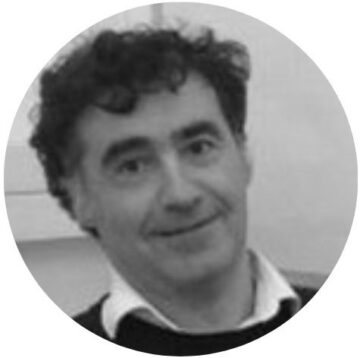Venue: Centre Broca

David Hansel
INCC – Univ. Paris-Descartes – Paris
Cerebral Dynamics Plasticity and Learning lab., CNRS
https://incc-paris.fr/people/david-hansel/
Invited by Thomas Boraud
Title
Computation with randomness or why mice are not cats
Abstract
The connectivity principles underlying the emergence of orientation selectivity in primary visual cortex (V1) of mammals lacking an orientation map (such as rodents and lagomorphs) are poorly understood. We present a theory in which random connectivity gives rise to orientation and direction selectivity that matches experimental observations. The theory predicts that mouse V1 neurons should exhibit intricate receptive fields in the two-dimensional frequency domain, causing a shift in orientation preferences with spatial frequency. We find evidence for these features in mouse V1 using calcium imaging and intracellular whole-cell recording.
Biosketch
David Hansel, PhD in Physics, is senior researcher at the CNRS (France) and visiting scientist at the Edmond and Lily Safra for Brain Sciences (Hebrew University, Jerusalem, Israel). Theoretical neuroscientist, he is co-leader of the Cerebral Dynamics Plasticity and Learning laboratory at Paris-Descartes University (Paris). His expertise includes the collective dynamics of large neuronal networks, the mechanisms underlying feature selectivity in sensory cortices, the collective dynamics in the basal ganglia and the neural correlates of working memory. He uses techniques borrowed from physics and has a long record of collaborations with experimentalists. With C. van Vreeswijk (1962-2022), David Hansel founded the World-Wide Theoretical Neuroscience Seminar, a seminar series held on zoom since 2020.

